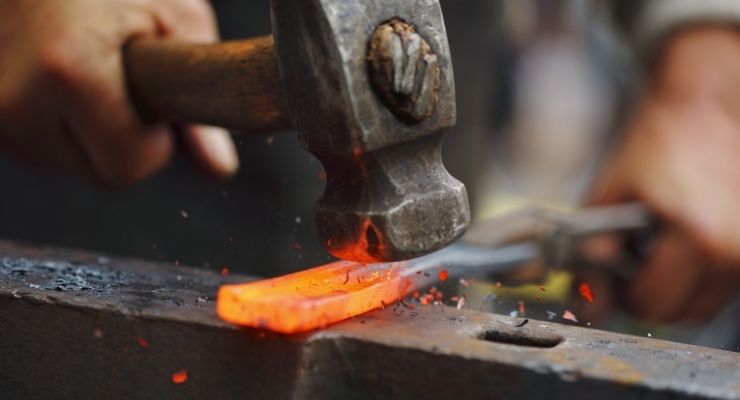
As a beginner blacksmith, you have many decisions to consider before you start forging. You must choose a forge, fuel type, tools, and more. So how do you know which materials are best to work with? Keep reading to discover the best types of metals for a beginner blacksmith to forge and which to avoid.
Steel
Steel is the best metal to work with as a beginner blacksmith. However, not all types of steel are equal for blacksmithing purposes. Look for low- and medium-carbon steels. Carbon steels may contain various metals, including chromium, titanium, nickel, cobalt, and more. All these affect the steels’ strength. Avoid high-carbon steels, as they’re stronger and harder to work with, especially for beginners. Alloy, microalloyed, and stainless steels are also good options to look out for.
Aluminum
Aluminum is another great option when it comes to forging. If you need a lightweight material that still holds its strength, go with aluminum. Aluminum is also resistant to corrosion and cracks from stress. As a testament to this metal’s strength, you can even find aluminum parts in aircraft. So don’t underestimate aluminum in your personal blacksmithing projects.
What To Avoid
Before starting up the forge, you should also know what materials to avoid as a beginner blacksmith. Cast iron is one metal that you shouldn’t use. This is because cast iron is quite brittle compared to other materials. Also, you don’t want to work with materials that are too tough for your forge.
The melting points of some precious metals are difficult to work with, so make sure you know how hot your forge gets before working with certain materials. Some metals have such high melting points that you won’t be able to melt them with certain forge setups.
Now that you know the best types of metals for a beginner blacksmith to forge and what to avoid, you’re all set to choose your smithing materials. One of the best ways to learn to smith is to practice, practice, practice. So get out there and give your metal selections a try.



